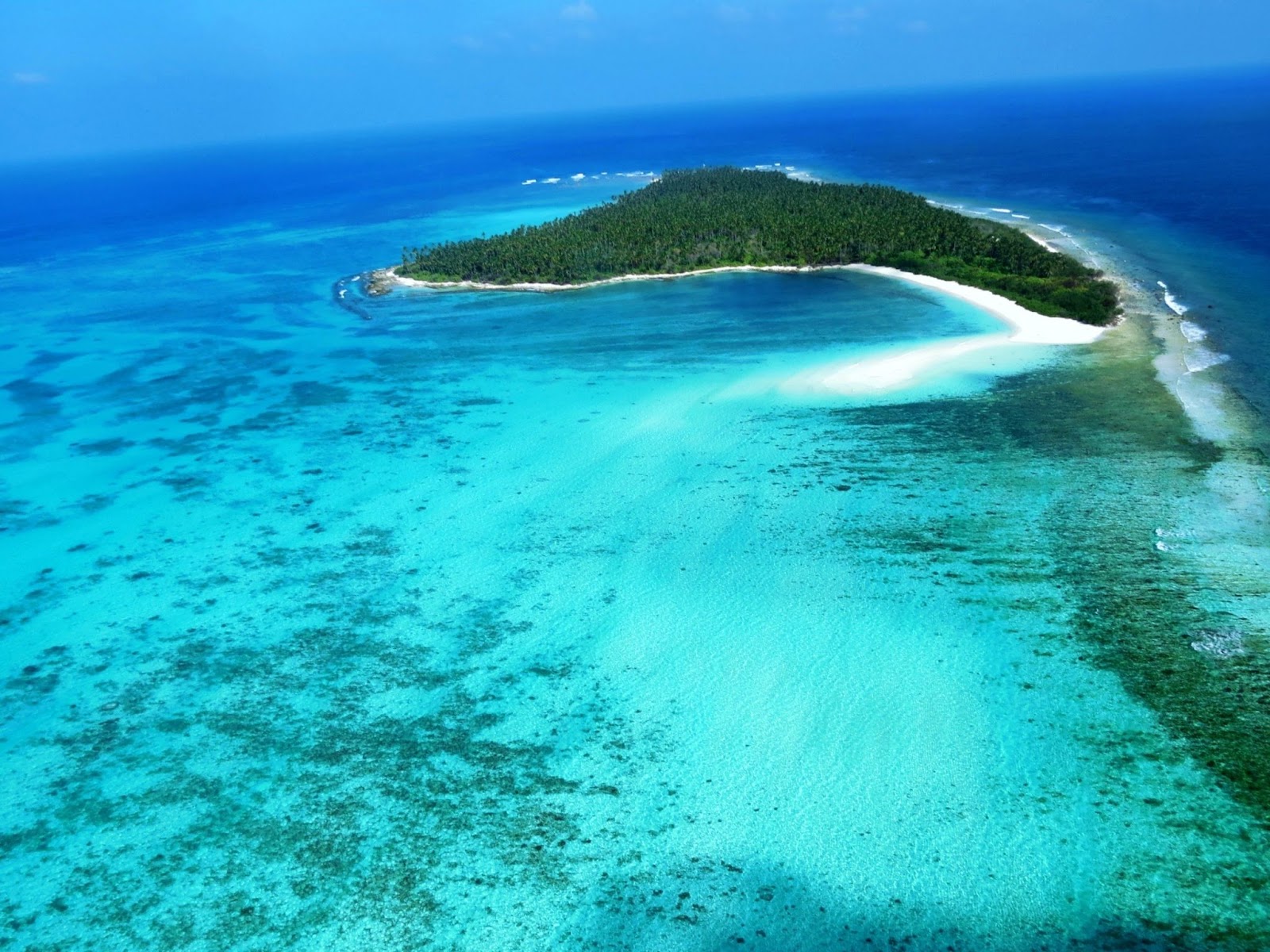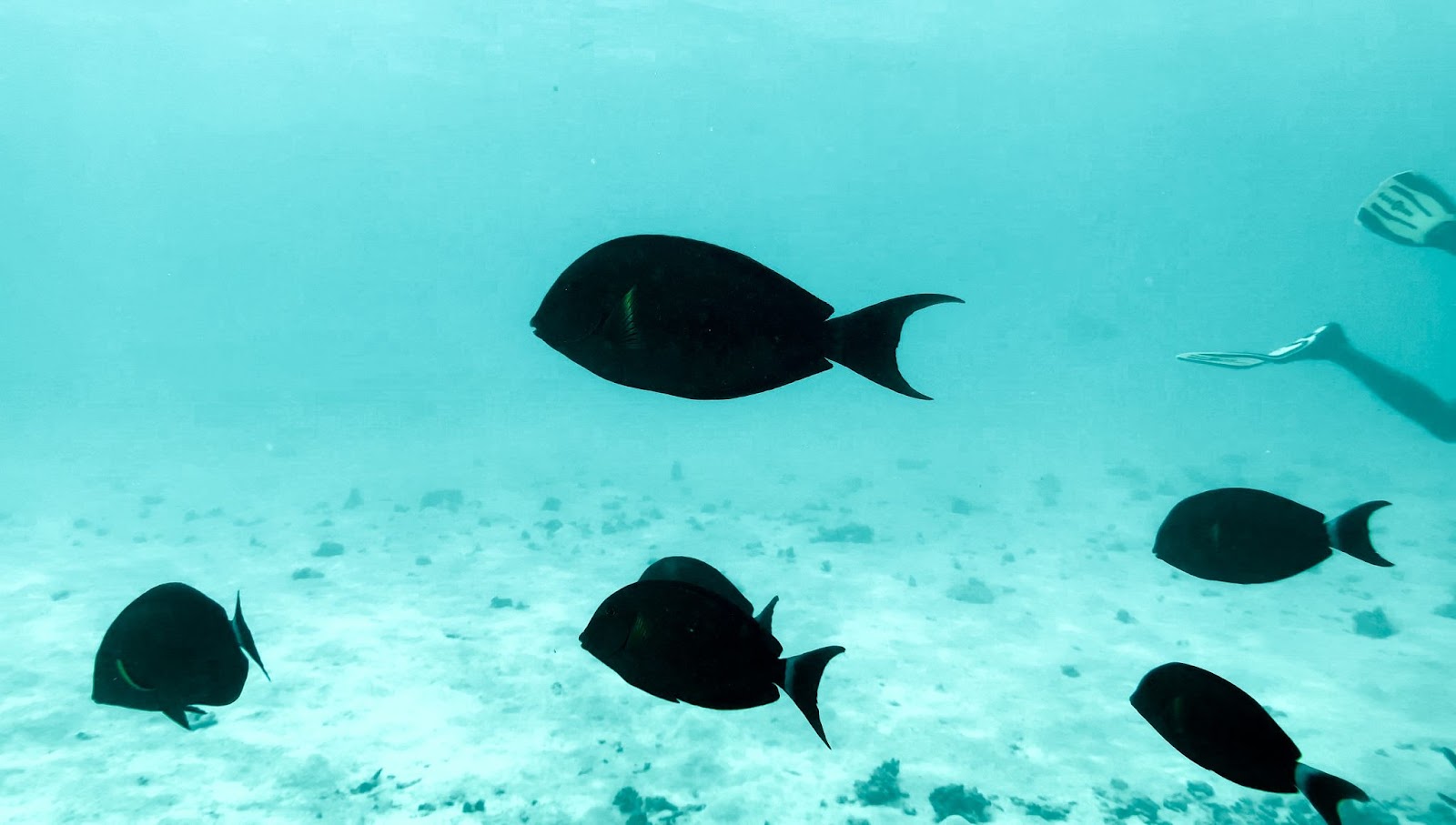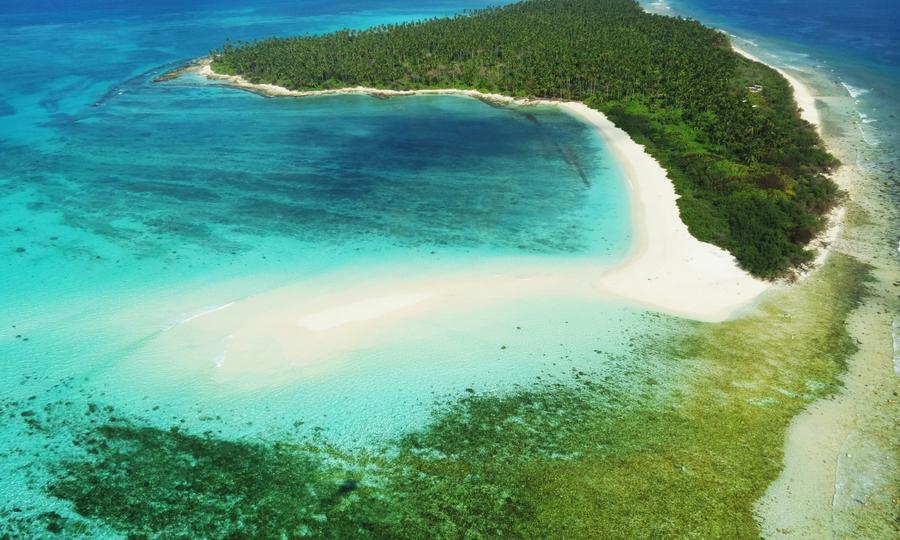Imagine it: stepping onto powdery white sand, the sun warming your skin as turquoise waves whisper secrets to the shore. Palm trees sway like welcoming dancers, and the only sound is the gentle sigh of the Indian Ocean. This is the promise of the Maldives, the quintessential beach paradise that lures sunseekers and honeymooners from every corner of the globe.
But just across the water, a sister archipelago whispers a different story. Lakshadweep, India's hidden gem, shares the Maldives' azure waters and coral reefs, but its shores crackle with a tension unseen in its tourist counterpart. Prime Minister Modi's recent visit and enthusiastic tweets promoting Lakshadweep tourism have thrown fuel on a simmering fire, sparking a cultural and environmental maelstrom that travelers can no longer ignore.

Beneath the idyllic surface, a clash of titans is brewing. On one side, a government pushing for ambitious development plans, envisioning Lakshadweep as a rival to the Maldives, brimming with luxury resorts and high-end infrastructure. On the other, the islanders themselves, fiercely protective of their unique culture and fragile ecosystem. This is not just a battle for economic pie; it's a fight for the soul of an archipelago.
A Tweet Ignites the Flame:
Prime Minister Modi's visit to Lakshadweep in January wasn't just a vacation. His tweets, praising the islands' stunning beauty and snorkeling adventures, were seen as a blatant attempt to lure tourists away from the Maldives. This, in a context of strained relations between India and the Maldives due to the latter's growing ties with China, fueled accusations of political agendas masked as tourism promotion.
But Lakshadweep islanders saw something else: a threat. The proposed development plans, championed by Modi's administration, included regulations limiting traditional fishing practices, prioritizing large-scale resort projects over local businesses, and even allowing alcohol consumption, a taboo in this largely Muslim community. To them, this wasn't progress; it was an invasion, a bulldozing of their way of life for the sake of tourist dollars.
Beyond the Brochure: Echoes from the Shore:
While glossy travel brochures paint Lakshadweep as a picture-perfect escape, a different narrative unfolds through the whispers of its inhabitants. Meet Fatima, a third-generation fisherwoman whose family's livelihood is threatened by restricted fishing zones. Hear from Hassan, a young tourism worker, torn between the economic promise of luxury resorts and the fear of losing his cultural heritage. These are not mere statistics; they are human stories woven into the intricate tapestry of Lakshadweep's struggle.
Traveler, before you book your flights, delve deeper. Understand the complexities of this paradise on edge. Learn about the islanders' fight for their cultural autonomy, their concerns for the fragile ecosystem, and their fears for the future of their ancestral lands. This knowledge will enrich your experience, transform you from a mere visitor into a mindful traveler, and empower you to make informed choices.
Data Dive:
Lakshadweep comprises 36 islands, of which only 10 are inhabited. (Source: The Times of India)
Tourism contributes to 45% of Lakshadweep's GDP. (Source: The Hindu)
The proposed development plans aim to attract 1 million tourists annually by 2025. (Source: India Today)
Over 90% of the population in Lakshadweep are Muslims. (Source: Census of India, 2011)
Beyond the Headlines: Beyond the Maldives Mirror:
Lakshadweep's story is not just about one archipelago; it's a microcosm of a global struggle. It's a battle between unbridled development and sustainable tourism, between profit and paradise, between the allure of modernity and the preservation of cultural heritage. As travelers, we have a responsibility to be informed, to understand the stories and struggles beyond the glossy brochures.
So, the next time you dream of turquoise waters and swaying palms, remember Lakshadweep. Let its tale guide your travels, urging you to seek destinations that embrace responsible tourism, that respect the local way of life, and that strive for a harmonious balance between progress and preservation. Only then can we ensure that Lakshadweep, and countless other paradises like it, remain havens for travelers and locals alike, for generations to come.







